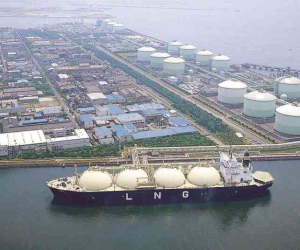By: Charles Ayers
Despite improvements in energy efficiency and falling consumption levels, Europe is a continent run on fossil fuels, and much of these fuels are imported from non-EU countries. EU energy imports (almost all in the form of fossil fuels) accounts for 53.4% of Europe’s total energy consumption, meaning that over half the energy used in the EU must be imported. A significant portion of these fossil fuels originates from the Russian Federation, a country with increasingly strained relationships with the West. European publics and policymakers have grown increasingly uneasy about this relationship, and worry that Russia might threaten energy sanctions to extract concessions from the EU. A German Marshal Fund poll showed that European respondents were generally anxious about Russia’s role as an energy supplier; for example, 81% of Polish respondents and 79% German respondents said they were apprehensive about the situation.
The United States status as a newly invigorated natural gas producer has led to calls for EU and US policymakers to ease the transfer of energy imports between the two allies. The “fracking revolution” has transformed the US into an energy exporter currently producing more gas than Russia. Politicians on both sides of the Atlantic have called on the US congress to loosen gas export limits and begin the construction of LNG (liquid natural gas) export terminals. Several eastern European nations particularly vulnerable to Russian energy sanctions have already begun constructing LNG import terminals. Desire for American gas has also played a role in discussion of the free trade Transatlantic Trade and Investment Partnership (TTIP) between America and EU. The deal would end American restrictions on energy exportation, allowing for the free movement of gas across the Atlantic.
However, an examination of the economics of natural gas production and exportation has led others to contend that American gas might not be that significant in European plans for energy independence. LNG export and import terminals are expensive and take several years to build, making a rapid shift to American gas difficult for various European countries. Additionally, US energy companies will most likely begin to sell LNG on the open market, putting Europe in a costly bidding war with Asian buyers. The concerns of European policymakers and publics have also prompted a drive towards energy diversification, and a search for alternative energy supplies. It might be these undertakings, as well as a more cohesive EU energy policy, that offer the best defense against Russian blackmail. If American gas production cannot account for all or most of Europe’s energy needs in the near future, EU policymakers must continue to craft solutions closer to home.

